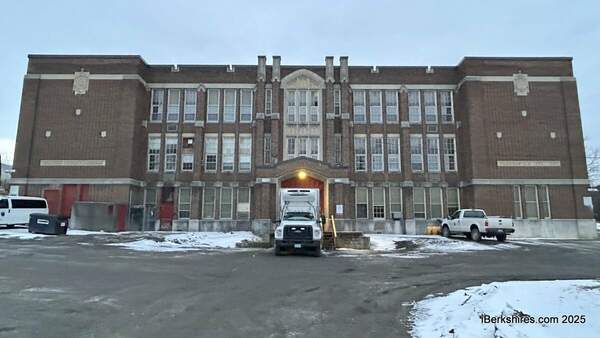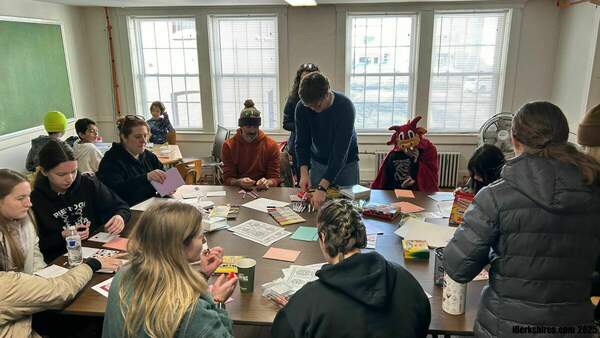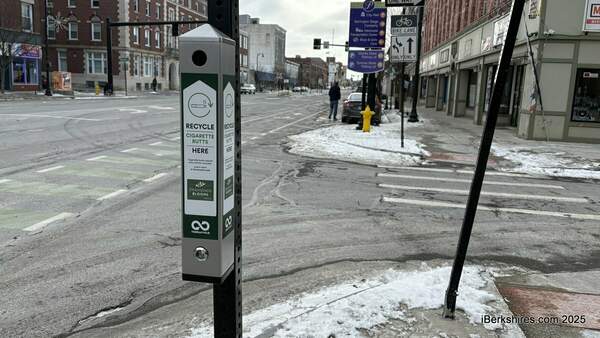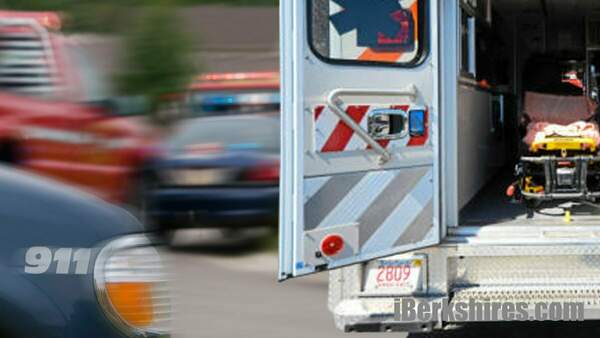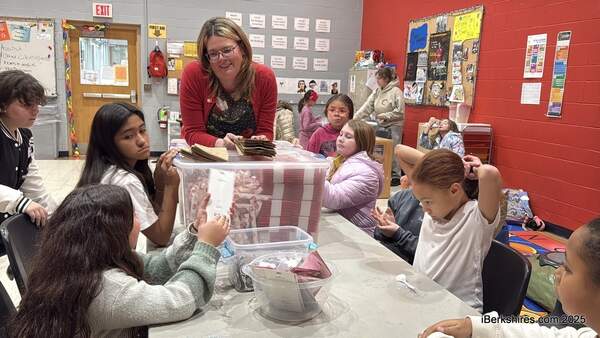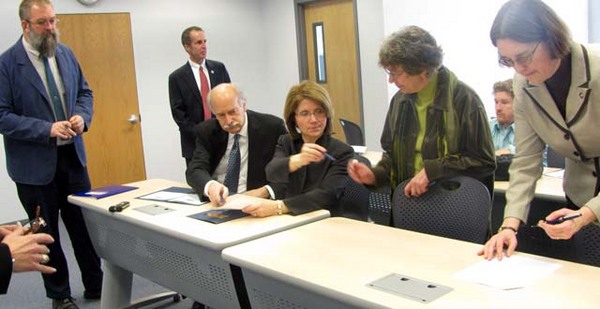
Colleges Collaborate on Biotech Education
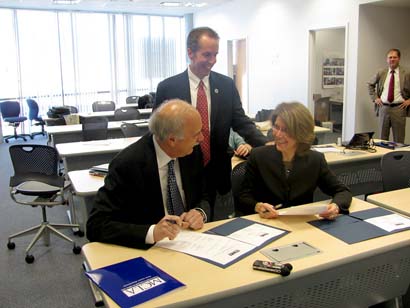 State Rep. William 'Smitty' Pignatelli jokes with college Presidents Paul Raverta of BCC and Mary Grant of MCLA before they sign a new articulation agreement. |
The articulation agreement is the latest "2 plus 2" program between Massachusetts College of Liberal Arts and Berkshire Community College that allows students earning associate's degrees in particular programs at BCC to earn a bachelor's degree at MCLA with two more years of study.
"Biotechnology is a relatively new field, an expanding field with diverse employment opportunities," said Monica Joslin, MCLA's dean of academic affairs, on Tuesday morning at BCC's downtown classroom space at the Intermodal Transportation Center. The new career track will give students a background in chemistry and biology and laboratory skills that will prepare them either for employment or further studies.
County leaders have been trying to position the Berkshires as fertile ground for biotech companies with the passage two years ago of legislation calling for a billion-dollar investment in life sciences over the next decade. MCLA is in line for a $54 million science center projected to open in 2013 and Pittsfield last fall was designated a "bioready" community.
BCC launched its two-year degree in biotechnology this past fall; faculty at the two public schools worked to align courses and curriculum to allow for a "seamless transfer." This new collaboration will help educate the work force to make the Berkshires more attractive to biotech companies.
"What we're offering today, together, is an educational and economic opportunity to the citizens of Berkshire County in an area that's going to have significant job growth going forward," said BCC President Paul Raverta. "What we've done here is create this economic and educational pathway ... producing individuals who are trained in broad-based science and the biotechnology field."
Students who take general biology and chemistry, courses in laboratory techniques and biotechnology in BCC's new biotech degree will be able to continue their education at MCLA in biochemistry, microbiology, cell biology and technical laboratory skills.
The course also aligns with the STEM Pipeline (Science, Technology, Engineering & Math) to encourage and excite youngsters about the possibilities of science by exposing them to college-level coursework and activities such as the annual Science Fair. BCC and MCLA also cooperate through the Berkshire Compact, which brings educational, civic and business entities together to promote lifetime learning.
Not so many years ago, the liberal arts college was considering cutting back its physics offerings. Now, more than 20 percent of its undergraduates are enrolled in STEM fields, including medical technology, cytotechnology, athletic training (biology) and allied health (biology).
"It's all coming together but it's coming together after lots of years of working toward it," said MCLA President Mary Grant, who noted the "incredible investment in the region" of the science center will open up more chances for collaboration. "The seed is planted ... and there will be more planted. I think we're in very good shape."
State Rep. William "Smitty" Pignatelli, D-Lenox, a House member of the Joint Committee on Higher Education for five years, said investment in life sciences has too often been Boston-centric.
"I think this collaboration is going to not only allow opportunities for business to come here, but they'll have an educated work force .. and that's what excites me the most," he said. "It's a great economic opportunity for all of the Berkshires — from North Adams to Sheffield and everywhere in between."



